- Dana Bull is a realtor and real estate investor based in Massachusetts.
- She became a landlord in her early 20s when she bought a condo and rented it out for extra income; she now owns more than a dozen rentals.
- Investing in real estate is like building a business: It takes patience and hard work.
At 22 years old, I accidentally started a business when I persuaded my boyfriend that we should buy a condo together. Little did I know, the small purchase would jump-start an entire real-estate career.
Throughout our 20s, we went on to acquire a couple of dozen rentals in the Boston area. Along the way, we tied the knot, making our living arrangements and real-estate initiatives much less taboo — a major source of relief for our parents. But, that’s a story for another day.
Let’s not sugarcoat it. For me, it was really tough in the beginning (the housing stuff, not the marriage). I specifically remember spending not one but two Valentine’s days cleaning up after a sewer backup.
In those early years, I had to keep my eyes on the prize to stay motivated. Investing in real estate is a worthwhile endeavor if you play your cards right. Here’s why:
- Cash flow: Rental properties are highly desirable for their ability to generate positive cash flow. This means after your mortgage and other housing-related expenses are paid off, you have extra profit. Lots of people are even turning their primary residence into an income-producing asset by renting out a bedroom or extra space.
- Appreciation: While not always, generally speaking housing values tend to appreciate over time. That means the longer you own a property, the more it should be worth. This is why many people refer to a home or a piece of real estate as the ultimate nest egg.
- Leverage: A lesser-known advantage of owning real estate is using the property as leverage. By consistently paying down the mortgage you have the opportunity to tap the equity you have built up. Talk about the ultimate rainy-day fund! If you own multiple buildings or buildings with several units under one roof, you have the option to cash out at any time.
- Tax advantages: Landlords have a few tax advantages over regular homeowners. They get to deduct items such as interest, insurance, maintenance, and even depreciation over time as business write-offs. Plus, when an investor sells a property and exercises a 1031 exchange to reinvest the proceeds into a new property, the person can defer all capital-gains taxes.
What I love about real estate is that you can build your own strategy. My bread and butter has been purchasing small multifamilies with two to four units per building. This is a great entry-level strategy, especially for those looking to live in one apartment while renting out the rest to offset a mortgage. I’ve mentored countless buyers on this approach, as it’s a logical avenue when getting started.
There are many ways to build your portfolio, however, from buying vacation homes, to commercial space, or land. Other possibilities include teaming up with partners and going in together on a big complex. If you are looking for something more passive, Real Estate Investing Trusts tend to produce similar returns to stocks in the long term.
The lure of owning real estate is pretty compelling. The goal for most is to achieve passive income from rentals. Of course, the Holy Grail is reaching financial freedom — meaning you can maintain your desired lifestyle through that income alone.
So, why isn’t everyone investing in real estate?
As I alluded to earlier, investing in real estate is building a business. Ask anyone you know who has ever tried to launch a company, open a restaurant or even start an Etsy shop … it’s not easy! What is easy is underestimating what’s involved.
The honest truth is that anyone can do it. But, you have to be willing to accept these three facts:
1. Getting started is really hard
To be an investor in real estate you need time or money, ideally both. I’m sorry, but there’s no two ways around that — it’s just common sense. If you don’t have time, then you will have to outsource many of the tasks, which will chew into your profits. If you don’t have money, then you will sink a lot of time into putting together deals with someone else’s financial backing.
Time and money are hot commodities. You can’t just snap your fingers and own a home, never mind an entire building. You have to research, analyze, and go through the process to make the acquisition. This is the stage where most people give up. They realize it takes up too many resources in their day-to-day life to make it happen.
2. Scaling is even harder
It doesn’t get easier once you actually own the property. As with any business, you will face challenges, namely, How can you grow given your constraints? These limitations almost always boil down to, you guessed it, time and money. Do you have time to handle maintenance requests? Do you have the money to hire a property manager? There is no easy answer.
As you scale, there are countless situations to work through. The highs can be very high and the lows very low. One month all your tenants pay on time, and the next you’re at eviction court. The lows are stressful and can make any business owner second-guess whether it’s worth it.
3. Waiting is the hardest
Remember that story the tortoise and the hare? Slow and steady wins the race. It can take a while to reach your end goal, and getting there may not be a straight line. You could have big, short-term wins (or losses!). While not the norm, some of my clients have cleared $100,000-plus through savvy buying and selling in a short time frame.
Part of this is luck and part of this is strategy. Realistically, building a reliable and repeatable business model that will support you for the long haul is not created overnight and requires you to hang on to your real estate.
Is it all worth it? I think so! Building anything worthwhile requires hard work. If you are interested in real estate, and willing and able to commit, it could be the right business for you.




















